The AirPods Max are over-the-ear Apple headphones. They're packed with modern technology and a uniquely Apple design. These headphones came to market as the in-ear AirPods and AirPods Pro dominated pop culture and sales charts.
The headphones have an Apple H1 chip in each ear cup. This chip is also found in AirPods Pro and second-generation AirPods. AirPods Max also includes Adaptive EQ, Active Noise Cancellation, Transparency Mode, and Spatial Audio.
Apple originally shipped the headphones in five colors: space gray, silver, sky blue, green, and pink. Those colors shifted with the 2024 USB-C update to midnight, starlight, blue, orange, and purple.
Apple put the headphones up for pre-order on December 8, 2020, with the ship date beginning on December 15, but they quickly sold out. The headphones cost $549, which is much more expensive than Apple's Beats By Dre brand.
A firmware update in October 2021 added Find My support beyond the basic functionality that existed before. When a device on the Find My network detects the AirPods Max, their location is updated on the map.
A rumor shared in May 2022 suggests that Apple could release new colors for their premium headphones in the fall, but it wouldn't be an updated model. The new colors were expected to be announced alongside AirPods Pro 2 at an Apple event, but it didn't happen until the 2024 fall event.
The updated AirPods Max aren't technically a second-generation product. Apple changed the Lightning port out for USB-C, but that's the only change.
Possibility of AirPods Max 2
It isn't clear how well AirPods Max have sold or whether they were ever meant to have more than one generation. The product offers excellent audio, but for a high price in a product with limitations on input/output.
Apple says it built the AirPods Pro 2 so customers could have the equivalent of AirPods Max in their pocket. That means the second-generation of AirPods Max will need to go even further with features and sound quality.
A new set of AirPods Max are more needed than ever, as new features are not available on products running the H1 chip, like Adaptive Audio. The new mute toggle is available on all recent AirPods models, but Adaptive Audio is AirPods Pro 2 only, for now.
The H2 chip available in the AirPods Pro 2 with USB-C also enables lossless audio playback when connected to Apple Vision Pro. It's an obvious feature that Apple could introduce when it updates the over-ear headphones.
Despite the obvious need for a hardware upgrade, Apple didn't do much with the 2024 re-release. Customers willing to pay $550 to move their headphones to USB-C have the option to, but gain little else.
Rumors suggest Apple has no current plans to update AirPods Max with a second-generation model with H2 chips or better. While that may change, it could be years before a new model is released, if ever.
AirPods Max Features
AirPods Max are Apple's most premium headphones. They are made of aluminum and steel, run on the H1 processor, and have Apple ecosystem-specific features.
Design
The AirPods Max headband has a canopy design with a synthetic "breathable knit mesh" material. The headband's primary structure is stainless steel with telescoping arms that adjust the length. Apple says the canopy distributes weight in a way that reduces head pressure.
The ear cups are suspended on a fully adjustable mechanism that rotates independently of the telescoping arm. Apple uses aluminum for the ear cups and a custom-designed mesh textile for the ear cushions.
The headphones followed the Apple Watch as the second Apple product with a Digital Crown. Located on the right ear cup, users can turn the Digital Crown in either direction for volume control or press it inwards to play/pause, skip tracks, or activate Siri.
Other headphones have opted for touch-sensitive pads or buttons to control playback and volume. Placing all the audio controls in a single dial makes for a more streamlined setup.
Adaptive EQ and ANC
AirPods Max use Adaptive EQ, a feature that continually adjusts the audio to the ear cushions' fit and seal. It measures the sound signal, changing the low and mid frequencies in real-time. Apple uses real-time data to provide a more robust and detailed audio experience.
Six external and two internal microphones listen for audio inside and outside the headphones to adjust playback dynamically. Each song, movie, or sound byte will be dynamically adjusted on the fly – custom for each listener's fit.
The AirPods Max have Active Noise Cancelation or ANC. This means the headphones use an external microphone to pipe in "anti-noise" to eliminate external noise from your listening experience. An additional mic inside the ear also listens for in-ear noise, negating that.
Another use for the ANC technology is something Apple calls "transparency mode." By utilizing the same techniques for ANC, Apple can pass external audio through to your ears as if you were not wearing headphones at all. This means moving around environments will be much safer as your ears won't be blocked.
Apple's headphones include a noise-control button on the right earpiece that lets you immediately switch between ANC and transparency modes.
A dedicated button can switch between ANC and Transparency with a single tap. The functions can also be adjusted using controls on your iPhone or iPad.
Spatial Audio
AirPods Max also supports the Spatial Audio feature launched with AirPods Pro on iOS 14. The feature mimics movie theaters' immersive surround sound, making the audio sound like it's coming from around the wearer.
Spatial audio uses the accelerometer to position audio elements in fixed points. When you move your head, the audio environment sounds like it stays in the same place, creating an illusion of being inside the soundstage. VR content uses the same approach for immersive audio inside the virtual environment. Apple would likely use similar technology for its rumored Apple Glass and VR headset.
Apple Music has been updated with Spatial Audio support and Dolby Atmos tracks. The AirPods Max can take full advantage of the new formats for a new-immersive listening experience.
However, these premium headphones cannot use hi-res lossless audio since they are not compatible with DACs. The standard lossless audio format will play through the AirPods Max over a cable, but Apple warns that they will not play true lossless audio due to analog to digital conversions that take place.
Listening to lossless audio codecs over Bluetooth may ensure that the maximum audio quality is passed to the AirPods Max, but the Bluetooth codec uses AAC, not FLAC. Bluetooth does not support lossless audio at this time.
Smart Case
The Smart Case places the AirPods Max into a low-power sleep state to conserve battery when not in use. When the headphones aren't in the case, they will be "awake," seeking nearby devices to connect. This could drain the battery faster if they inadvertently connected while idle.
Charging the headphones with a Lightning to USB-C cable and a 20W power adapter will give 1.5 hours of use after five minutes of charging.
The AirPods Max have about 20 hours of usable battery life when actively listening to audio. When removing the headphones and leaving them stationary for five minutes, they enter a low power state. After 72 hours of inactivity while out of the Smart Case, they enter an ultra-low power state which disconnects Bluetooth and Find My to preserve power further.
The Smart Case places the headphones in a low-power state immediately. After 18 hours in the Smart Case, they disconnect from Bluetooth and Find My.
Audio Experience
The Apple-designed dynamic driver produces a wide frequency range that aims to uncover the rich details of every sound. Apple hopes that the combination of powerful hardware and algorithms can recreate sound and texture for maximum effect.
Apple says that the driver’s dual-neodymium ring magnet motor minimizes total harmonic distortion across the entire audible range. This results in clearer audio playback even at high volumes.
Audio equipment can range from hundreds to thousands of dollars with no apparent upper limit. Apple has targeted a pricey but reachable price point for consumers.
Lossless audio and USB-C
When Apple announced AirPods Max with USB-C, it didn't share much about new capabilities beyond the new charging port. There wasn't even an option to connect the headphones over an audio jack cable.
In March 2025, Apple updated the USB-C AirPods Max with the ability to play lossless audio over the USB-C cable. Apple also released a USB-C to audio jack cable, but it doesn't support lossless.
While there isn't an H2 chip for H2 to H2 wireless lossless playback, the H1 does enable low latency playback with Apple products.
AirPods Max Review
In AppleInsider's AirPods Max review, we gave them 4 out of 5 stars. The high price may deter most, but the headphones are still an excellent choice for those immersed in Apple's ecosystem.
Design
AirPods Max have one of the most bespoke designs ever created for a set of headphones. The top portion of the headphones is made of stainless steel before being coated with a premium soft-touch material akin to silicone. The canopy is made from a proprietary mesh designed to rest just atop your head.
We don't mind the ear pads' mesh fabric but aren't sure everyone will. Leather is more typical on high-end headphones, but we know that isn't everyone's cup of tea, either. Leather can get quite warm in the summer months, while the mesh is more comfortable year-round. It wouldn't be surprising to see third parties launch their own replacement leather cushions.
Smart Case
Many people have strong feelings about the origami fabric that is the AirPods Max Smart Case. We won't go as far as to say we hate it, but certainly, more could be done. It comes off as different for the sake of being different and winds up sacrificing functionality and practicality.
Apple designed the case from a single piece of precision-cut fabric folded, glued, and shaped into a pliable case that the headphones can be inserted into. The case barely covers the two ear cups. The anodized aluminum ear cups are arguably the most vulnerable part of the headphones and most likely to be scratched if tossed into a bag.
The main point of a case is to offer protection to your headphones, but the Smart Case skirts its responsibility. With the case on, parts of the cups are still exposed. There are large gaps on the underside and the top that could still be scratched inadvertently.
We don't mind the lack of top protection on the Max, as it makes them easier to grasp and takes up less space when in our bag. We took ours on a road trip, and when in our backpack, it was much quicker to pick up the headphones right from the headband.
ANC
Active noise cancelation is even better here on the Max than on the AirPods Pro. The larger drivers and additional microphones are likely contributing to that. There are nine microphones on the AirPods Max, eight of which are used for ANC and three used for voice control and phone calls.
"In all environments we tested, it removed any background noise as well as its competitors. This is easily best-in-class ANC and one of the best features Apple has baked in here.
Audio Quality
Turning to audio, we're underwhelmed. In short, they produce above-average audio but fall short of other $550 headphones.
Baked into the headphones are 40mm Apple-designed dynamic drivers. Apple seems to be targeting a neutral audio profile, with excellent fidelity on the mids and highs but no extremes on either end. The soundstage is fantastic and more significant than most comparable models, which is fantastic for listening to music and watching movies.
Bass isn't bad but is volume-dependent. The lows were disappointing when turned down, but as we hit 50 percent or louder volume, the bass came in punchy and strong. At near-max volume, the bass was enough to near shake the cups on your head during a bass-heavy song.
Overall, the audio sounds clean and clear. The simplest way to describe it is as 'pleasing.' While that may not suffice for audiophiles, the average consumer who picks these up should be just fine with it.
Spatial Audio
Spatial audio is another feature altogether that needs highlighting. Between spatial audio and ANC, it is a unique experience to use these headphones. We kicked back to watch the latest episode of The Mandalorian through Disney+ on our iPad Pro in our testing.
Initially, we legitimately thought our headphones weren't working, and we were hearing the audio come straight from the speakers in front of us, especially as we moved our heads. Audio continued to come right from the characters on-screen as we turned our heads in any direction. It wasn't until we removed the headphones that we confirmed that the effect was coming from the AirPods Max.
Aside from the effect of audio's direction coming from the device, spatial audio also allows audio to come from all around you when mixed in Dolby 7.1 surround or Dolby Atmos. The effect is especially impressive with Atmos as sound can come from above, behind, or in any direction. It is a next-level listening experience and makes us want to listen more on headphones on our TV due to the better effects.
"The only hang-up is the lack of options. At the moment, spatial audio is limited to a few content providers. Apple's own content, HBO Max, and Disney+ are just a few apps that support spatial audio, but big players like Netflix currently don't. Developers will need to get on board with this because it does make a big difference in media consumption.
Overall Value
If you don't put any value in having a set of headphones tied closely into the Apple ecosystem, we'll never be able to convince you these headphones are worth it. Simply put — they don't sound like a pair of $500 headphones. They are absolutely above average and compare favorably to many popular models like the Sony XM4, Bowers & Wilkins P7, or Bose NC 700, but they fall short at the $550 price point.
That said, for us and our uses, they are worth the price Apple set — but just barely. The build quality is exceptional. The audio quality is fantastic and goes a long way towards bringing high-quality audio to the masses.
Comparison: AirPods Max vs. Bose 700 and Sony WH-1000XM4
ANC and Adaptive Modes
The AirPods Max, Bose 700, and Sony WH-1000XM4 headphones all use active noise cancelation to monitor external sounds continually and emit an "anti-noise" to tune out the outside world. All three headphones allow you to choose between transparency modes, letting you pick the degree of noise cancelation.
However, in addition to ANC, AirPods Max takes it a step further with Apple's Adaptive EQ feature, continually adjusting the sound based on the ear cushions' fit and seal. It analyzes real-time microphone input, changing what you hear on the fly. The technology is used to continually tune the headphones to provide the richest audio possible in each moment.
The Sony WH-1000XM4 has two features that may sound similar at first glance but work differently. Sony's headphones have an optimizer that plays tones and analyzes the microphone input to adjust noise canceling. However, unlike Apple's, it only adapts when you manually activate the feature and not on the fly. Sony also describes its optimizer as tweaking noise-canceling, while Apple's technology retunes the audio.
Sony includes an Adaptive Sound Control feature that learns your frequently visited locations, adjusting the noise-canceling mode to reflect that. While Apple's adaptive feature changes the audio based on the microphone input, Sony's adaptive feature adjusts noise-canceling levels based on your location.
Apart from the continuous monitoring of the microphone's external noise input to adjust ANC, Bose doesn't advertise an adaptive audio feature for its 700 headphones.
Design and Build Materials
The Bose 700 has a stainless-steel collapsible band with a rubberized coating on the part that wraps around the user's head. Bose uses a hard plastic for the earpieces' outsides and a memory foam wrapped in synthetic leather for the ear cushions.
Sony uses high-quality plastic for the WH-1000XM4's outer ear cups and outer headband. Both the headband lining and ear pads are synthetic leather.
Apple uses a "breathable knit mesh" for the headband canopy on top of the headphones. The headband's structure, which telescopes for fit, is stainless steel. Apple uses aluminum for the ear cups and a custom-designed mesh textile for the ear cushions.
AirPods Max is the heaviest of the three, weighing 13.6 oz. The Bose 700 is 34% lighter at 8.96 oz, while the Sony WH-1000XM4 weighs around the same at 8.8 oz.
Controls
Sony's headphones have two microphones in each earcup to optimize ANC. AirPods Max and Bose 700 each have eight microphones devoted to noise canceling. However, Sony's ANC has been considered top-of-the-line up to the point of the AirPods Max launch, so the lower mic-count alone isn't necessarily a strike against it.
AirPods Max includes a Digital Crown, familiar to Apple Watch owners, for user control. Located on the right ear cup, you can turn it in either direction for volume control or press it to play/pause, skip tracks, or activate Siri. Apple's headphones also have a noise-control button that lets you immediately switch between ANC and transparency modes.
The Sony WH-1000XM4 has touch sensors on the right earpad that let you control volume and tracks by swiping up/down or forwards/backward, respectively. Sony's headphones have a custom button on the left earpiece that you can set up to switch ANC modes, activate the ANC optimizer, or summon Alexa or Google Assistant. It allows you to choose two functions for the button – one for a single press and another for a long press.
The Bose 700 also uses swipe-based touch controls on the right earcup. The headphones also have separate dedicated buttons for ANC mode and voice assistant. Like the Sonys, Bose 700 also supports either Alexa or Google Assistant.
AirPods Max Price and Release Date
AirPods Max cost $549, but can frequently be found at a discount. The new USB-C model revealed in 2024 is sold at the same price.
AirPods Prices
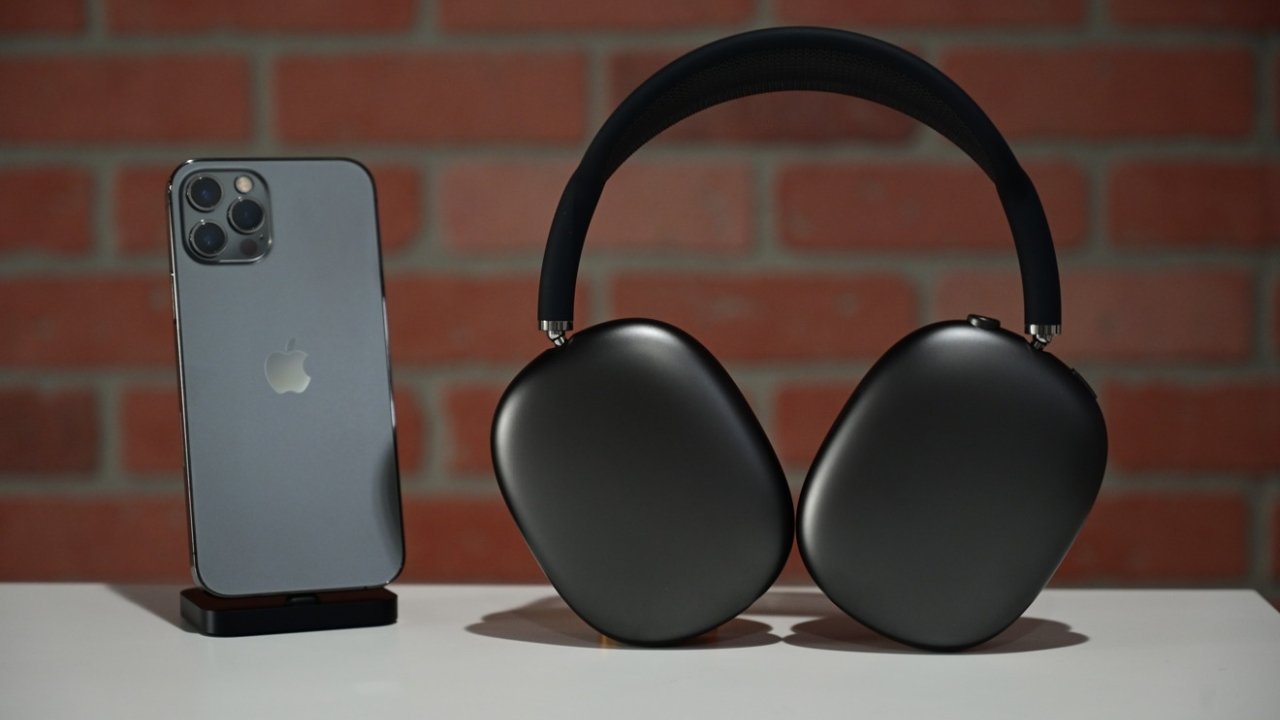
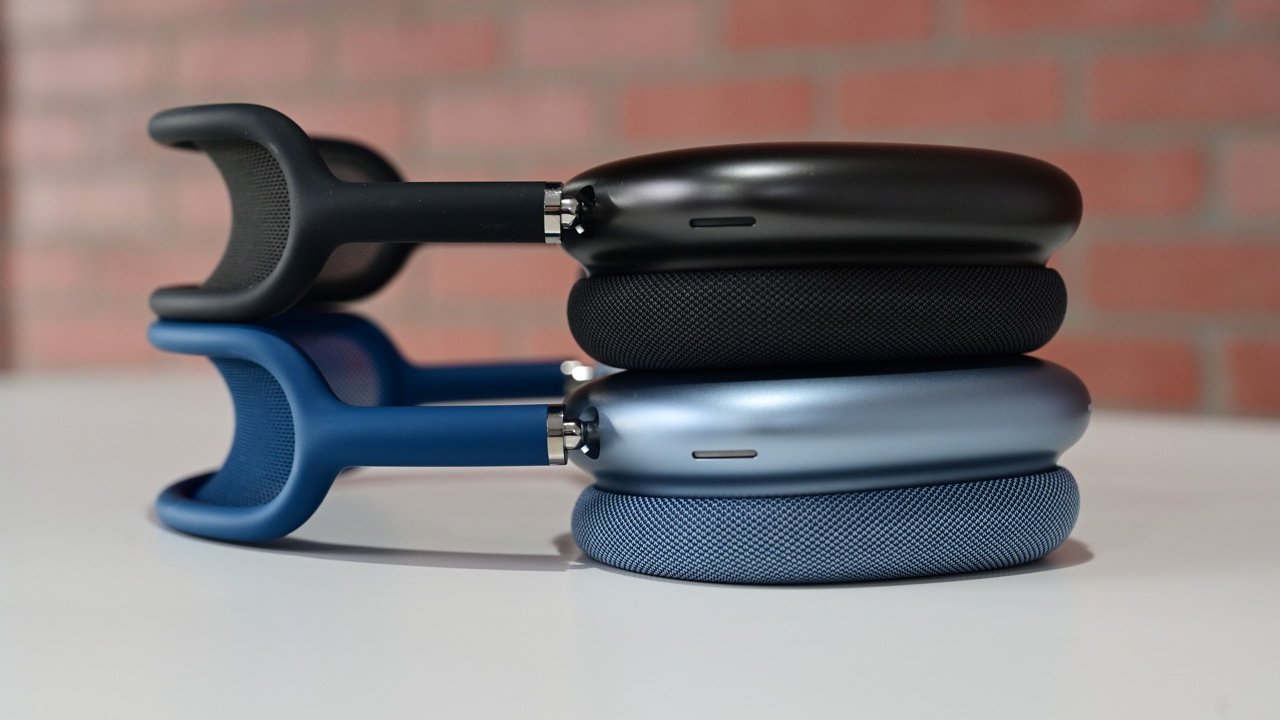
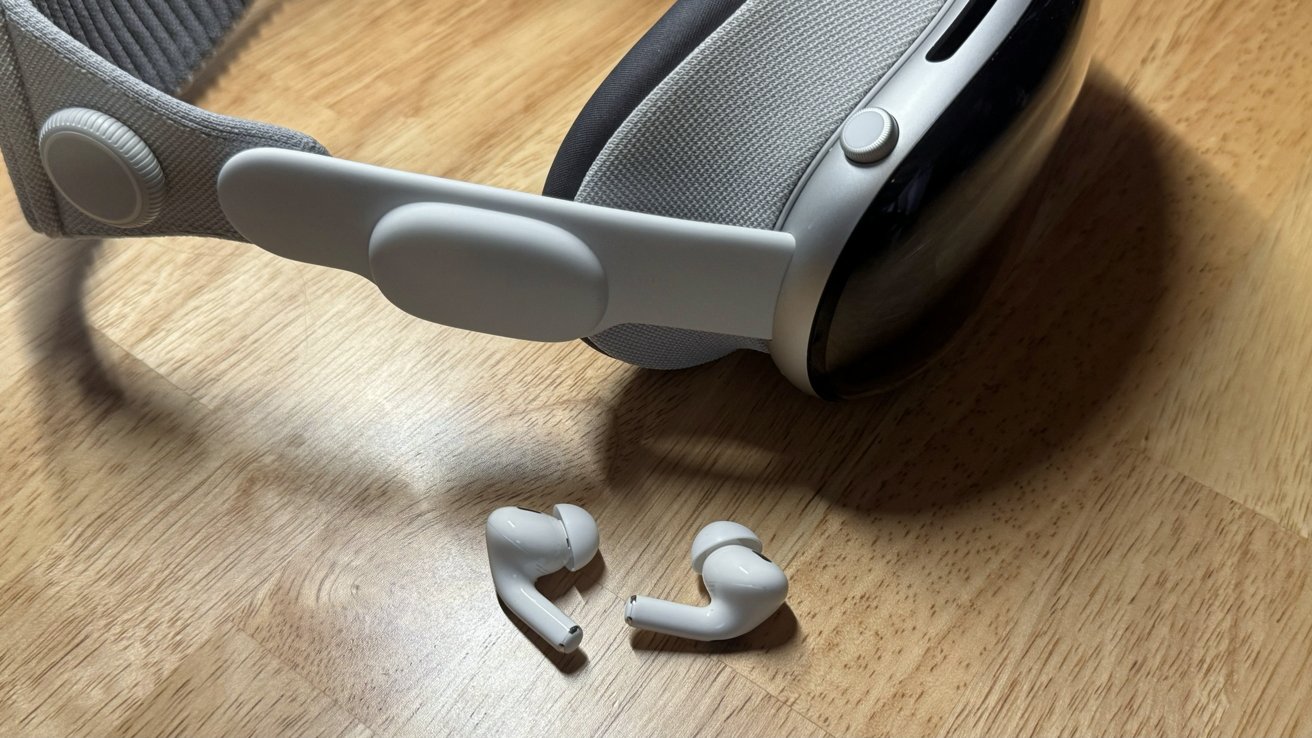
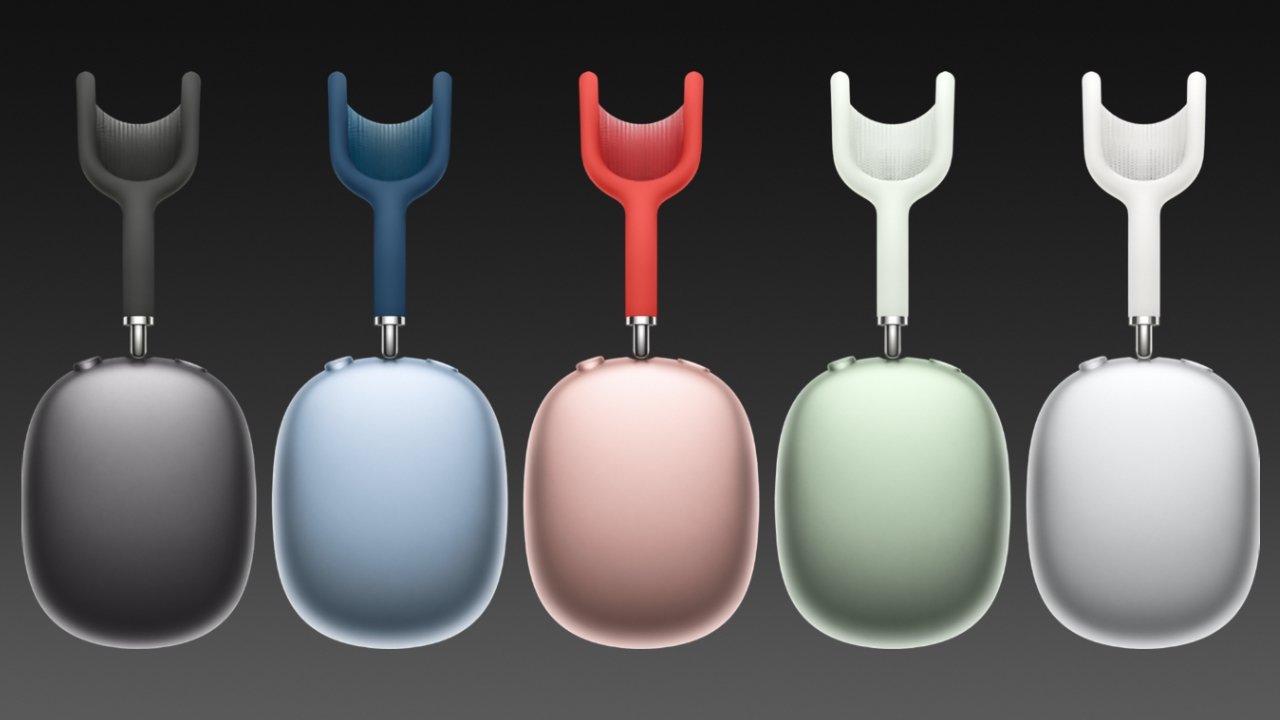
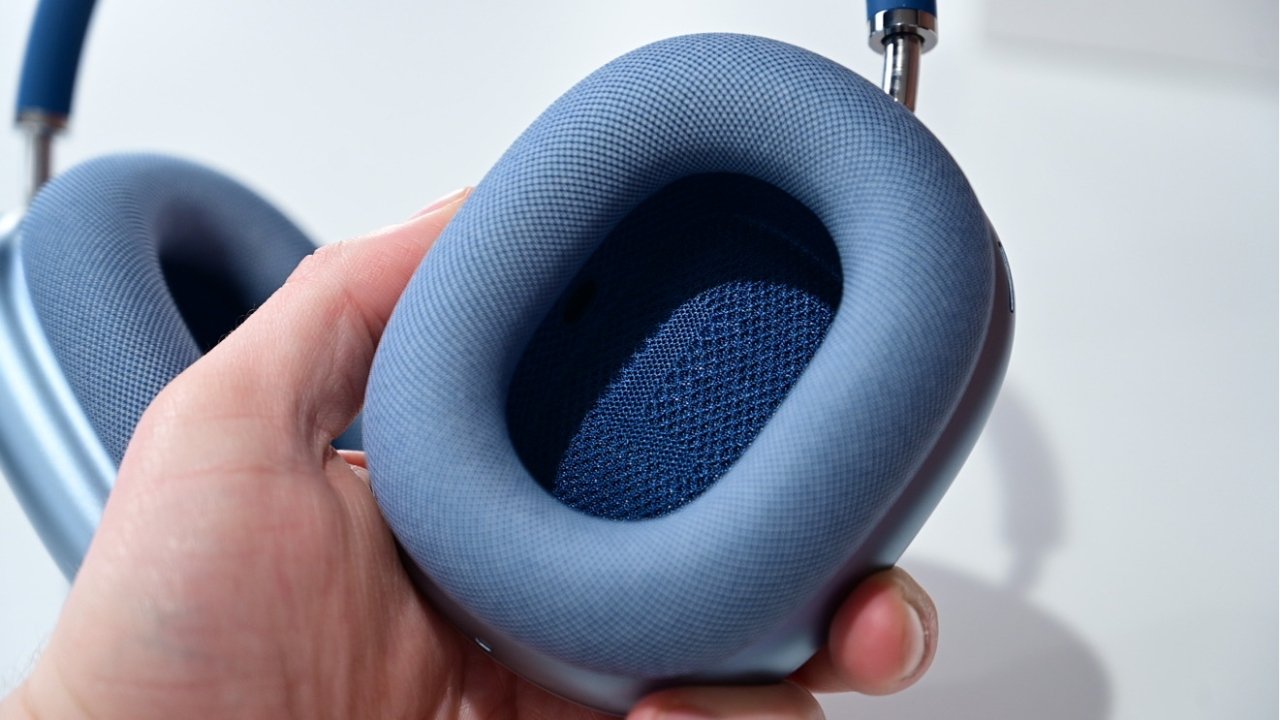
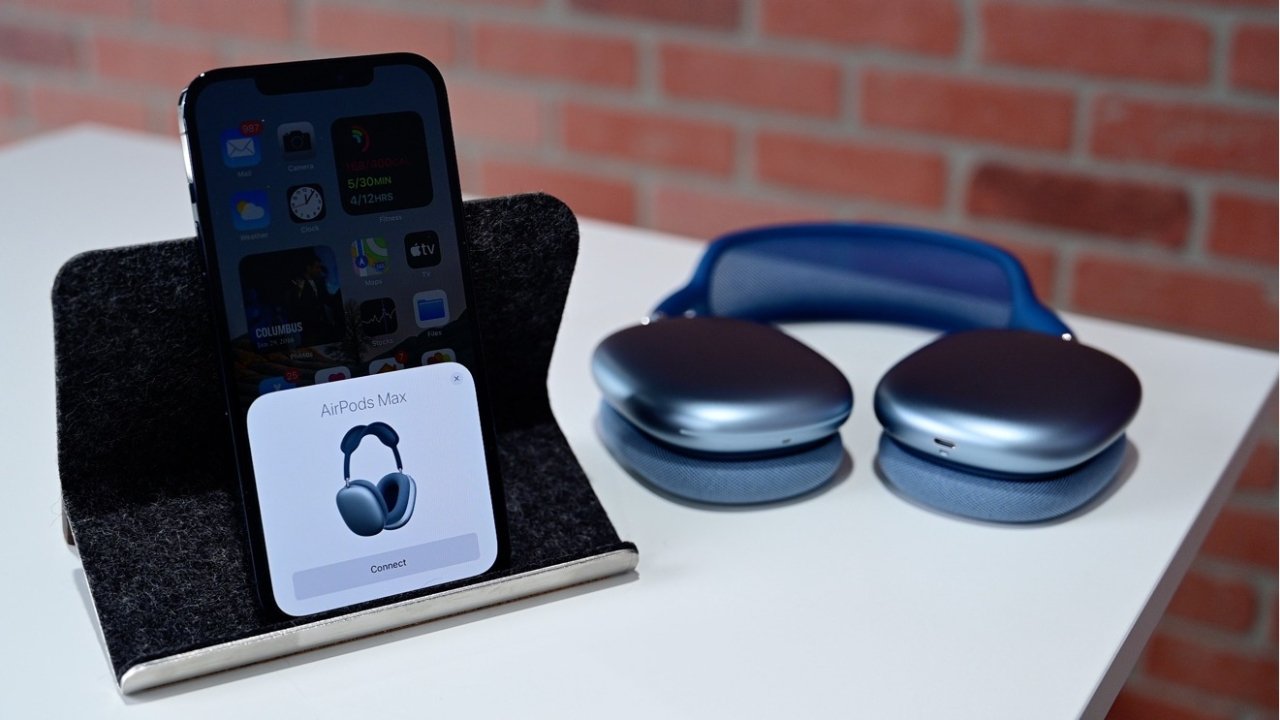
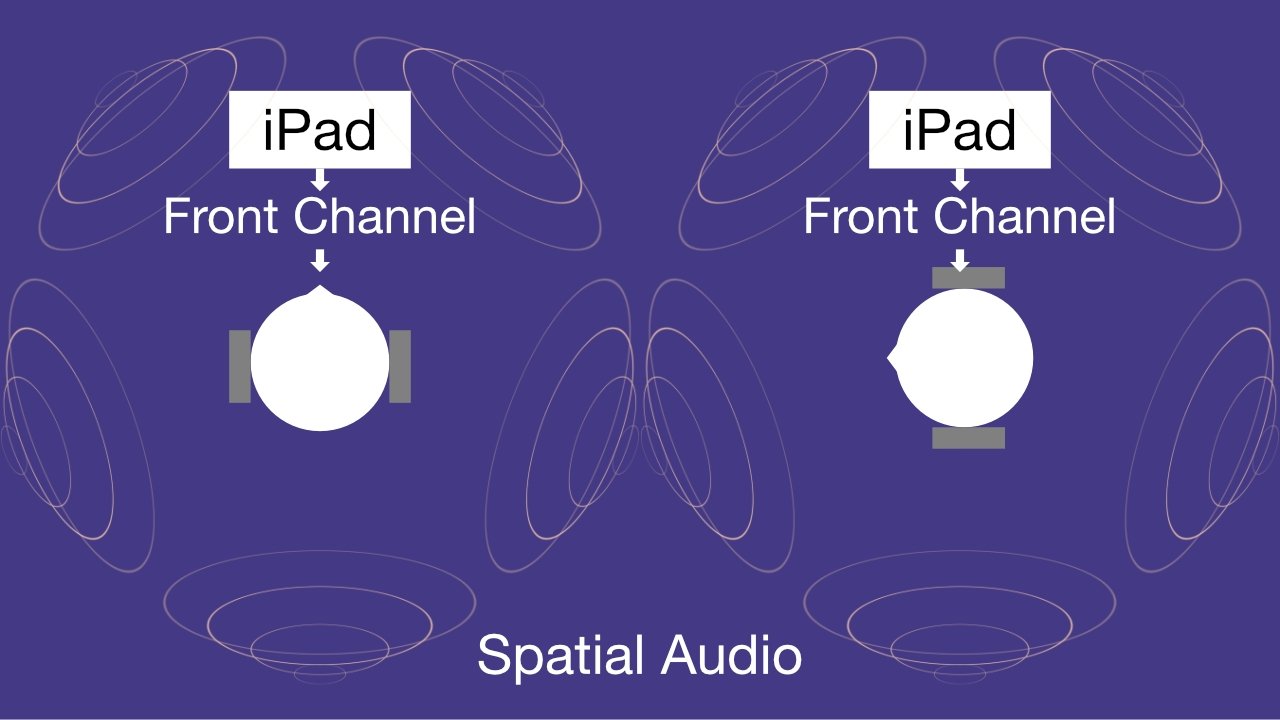
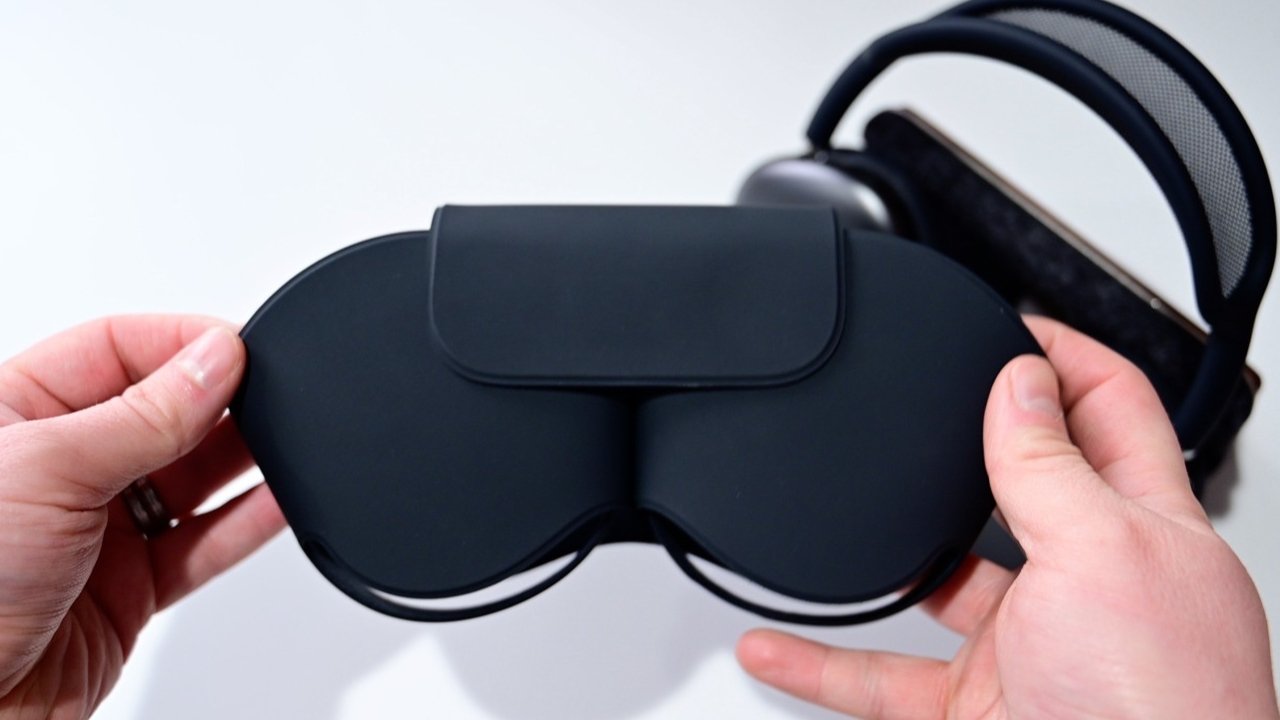
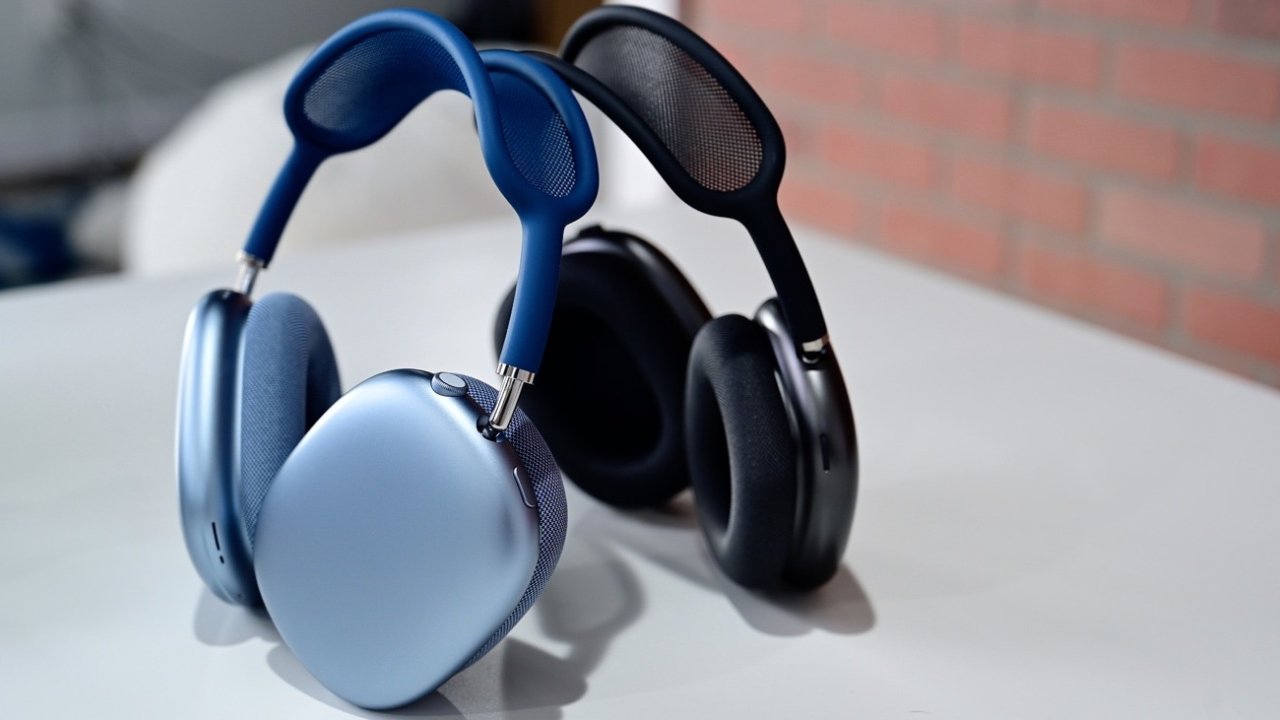
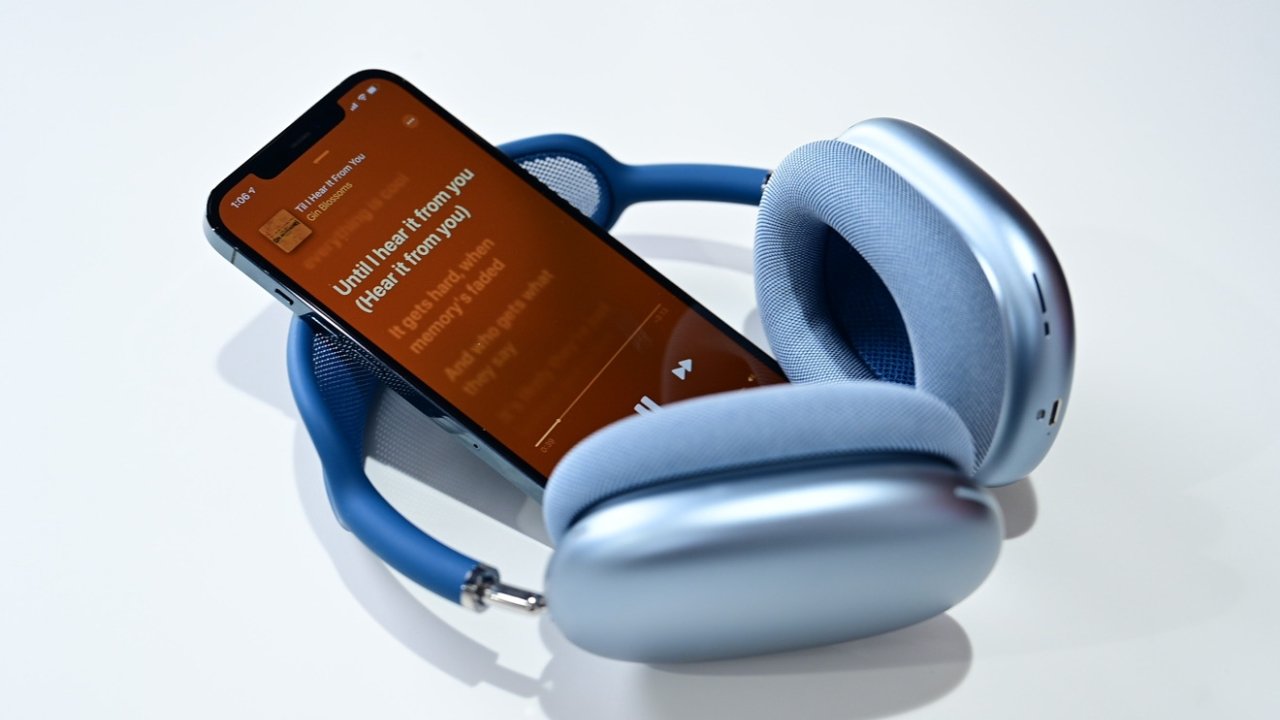
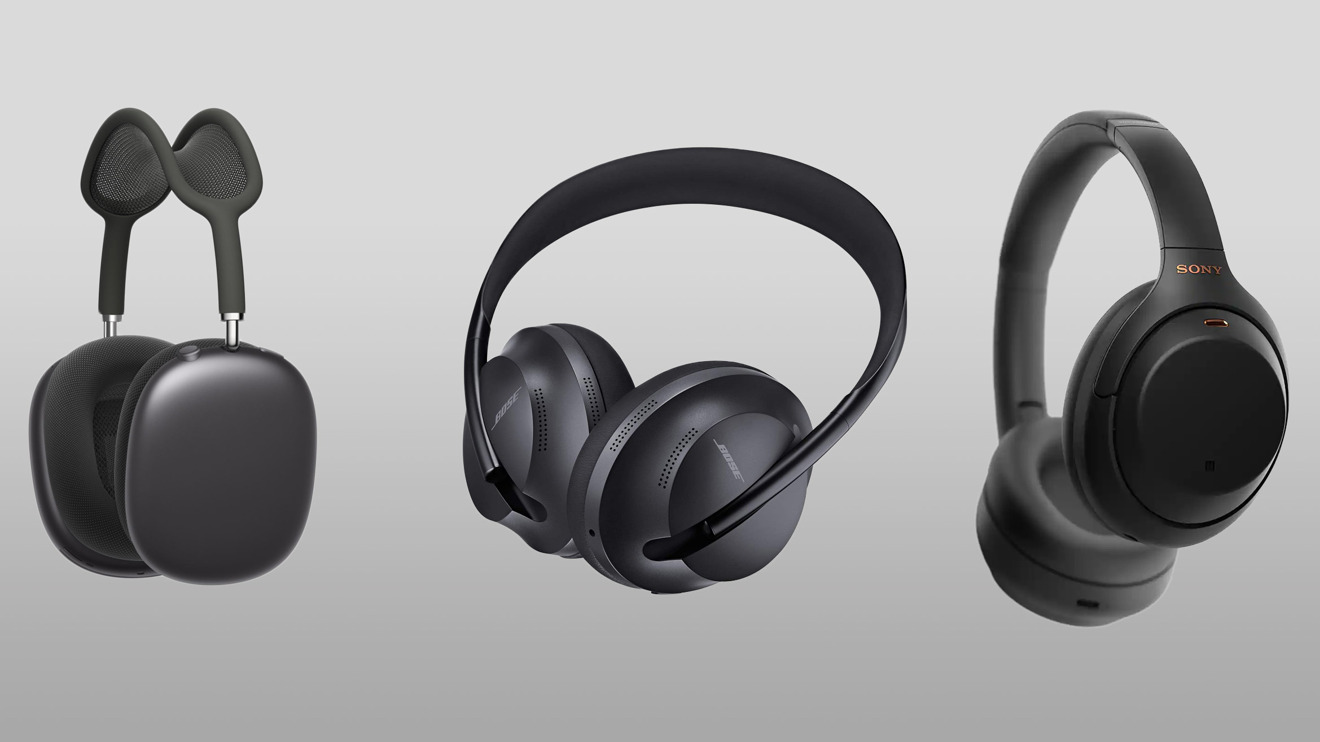







 Andrew Orr
Andrew Orr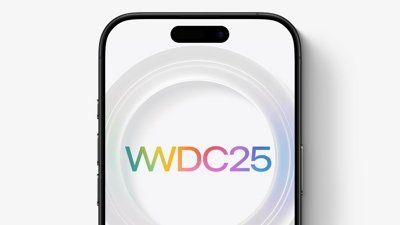
 William Gallagher
William Gallagher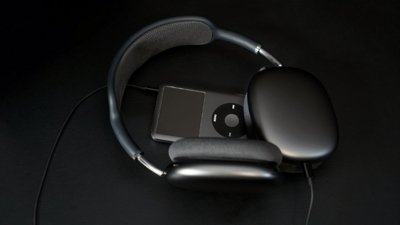
 Malcolm Owen
Malcolm Owen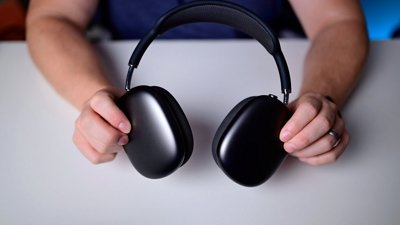
 Marko Zivkovic
Marko Zivkovic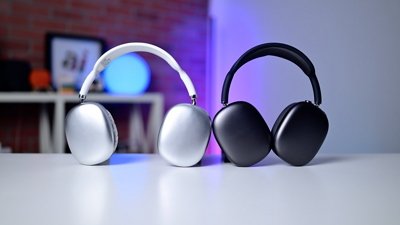
 Andrew O'Hara
Andrew O'Hara
 Christine McKee
Christine McKee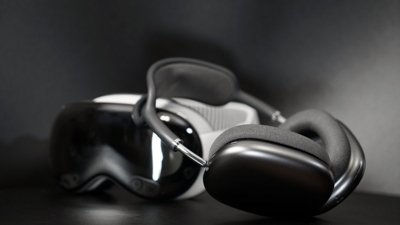
 Wesley Hilliard
Wesley Hilliard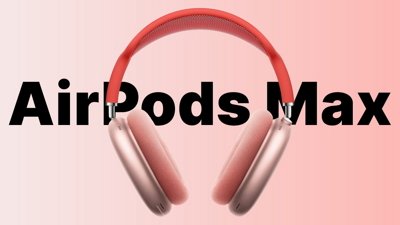
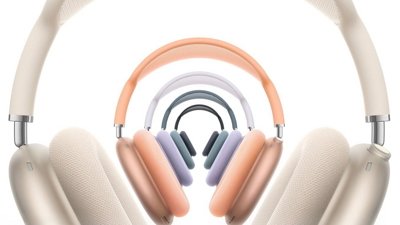
 Charles Martin
Charles Martin
